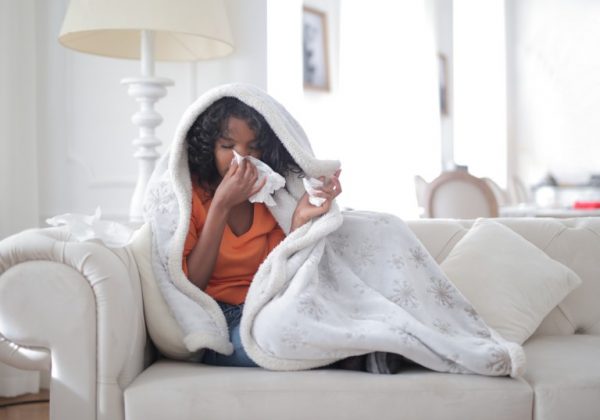
Tips to prevent winter allergy
Spring and summer means pollen allergy and during winter because of low temperatures and change in plant life pollen will end. However, during winter allergy does not stop as people live indoors during the cold weather. Living and spending more time indoor for several months it results in sickness because of allergens like molds, dust and if you have pets then it could be animal dander.
In countries where winter is harsh forced air ventilators circulate dust, lint, bacteria, pet hair and other microbes. Many use humidifier to avoid dry air and keeping humidifier at certain level support dust mites. Carpet harbors dust, microbes and pet dander.
You will be surprised to see the most seven common sources that causes allergy –
- Damp wood: Wood that we bring in for fire place can trigger mold allergy
- Smoke : Any smoke that might float in from a fire in the fireplace, candles or stove can trigger your allergies.
- Pet dander: With owner, pets also get stuck indoor during cold days which results in pets dander accumulation in the house.
- Pine trees: Wreath and Christmas tree can contribute for bugs or mold or both. Pine trees carry terpenes that might trigger allergic reactions
- Dry air: With heat on continuously humidity inside house reduces making air dry. It will cause dry, itchiness, dehydrated skin, dry throat, cough etc.
- Party snacking: Heave snacking during holidays can compromise immune system. Eating heavy sugar cookies, chips and other fat items results in heaviness and poor digestion reducing immune system activity that enhances allergy reaction.
- Blankets: Dust, pet dander, microbes all these will sit in warm blanket.
Common symptoms of indoor allergy:
- Sneezing
- Runny or stuffy nose,
- Coughing
- Itchy and watery eyes
- Soreness in throat
- Dark circles under eyes
- Itchy Throat
- Ear congestion
- Itchy sinuses
- Itchy ear canals
Other symptoms one can have are:
- Headache
- Wheezing
- Shortness of breath
- Coughing
How to prevent and minimize winter allergen exposure?
- If you have pets, keep pets out of bedroom to reduce allergen in bedroom.
- Regularly clean the carpet and rugs. If you can replace carpet with vinyl or hardwood or imitation floor. Carpet and padding creates an environment for survival of dust mites and mold.
- Shampoo and give bath to your pets once a week
- Change pillow, bed covers regularly. If possible use hot water.
- Once you come back from gym bathe and wash your hair
- Clean the house regularly. Use a wet/damp mop for cleaning floors to stop dust stirring up.
- Clean bathroom 2-3 times a week, wipe wet surface to stop mold growth.
- Check all your windows and doors for insulation. Good insulation helps to cut down mold growth.
- If you are allergic for cleaning and removing dust, seek someone’s help for cleaning.
- Keep very few stuffed animal toys in your children room
- Clean air conditioners (before onset of winter), refrigerators, humidifiers, swamp coolers
Treatment and medications
- Talk to your doctor before taking any medications. Doctors may recommend decongestants, antihistamines, Benadryl and nasal sprays
- There are many home remedies one can try to reduce the symptoms of cold and allergy. See here
- Drinking hot water, hot drinks, hot soup, eating hot food helps. Keeping body warm, clean and wearing warm clothing is essential during winter.
References:
http://foxcitiesallergists.com
Image credit: Photo by Andrea Piacquadio from Pexels (Free for commercial use)
Author: Sumana Rao | Posted on: November 6, 2019
« Your sleep depends on your blanket too Clogged arteries? Take a look at your diet »






















Write a comment